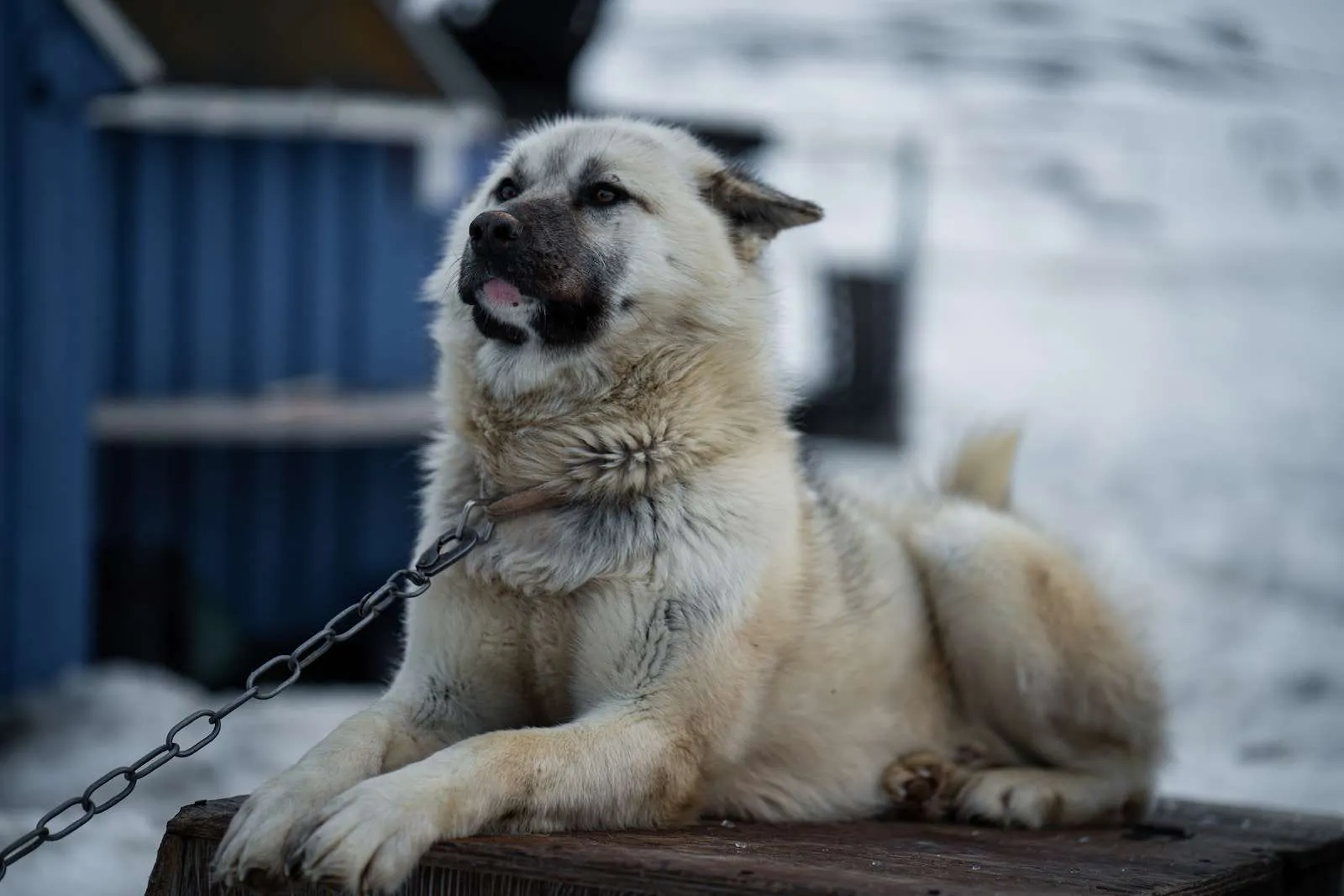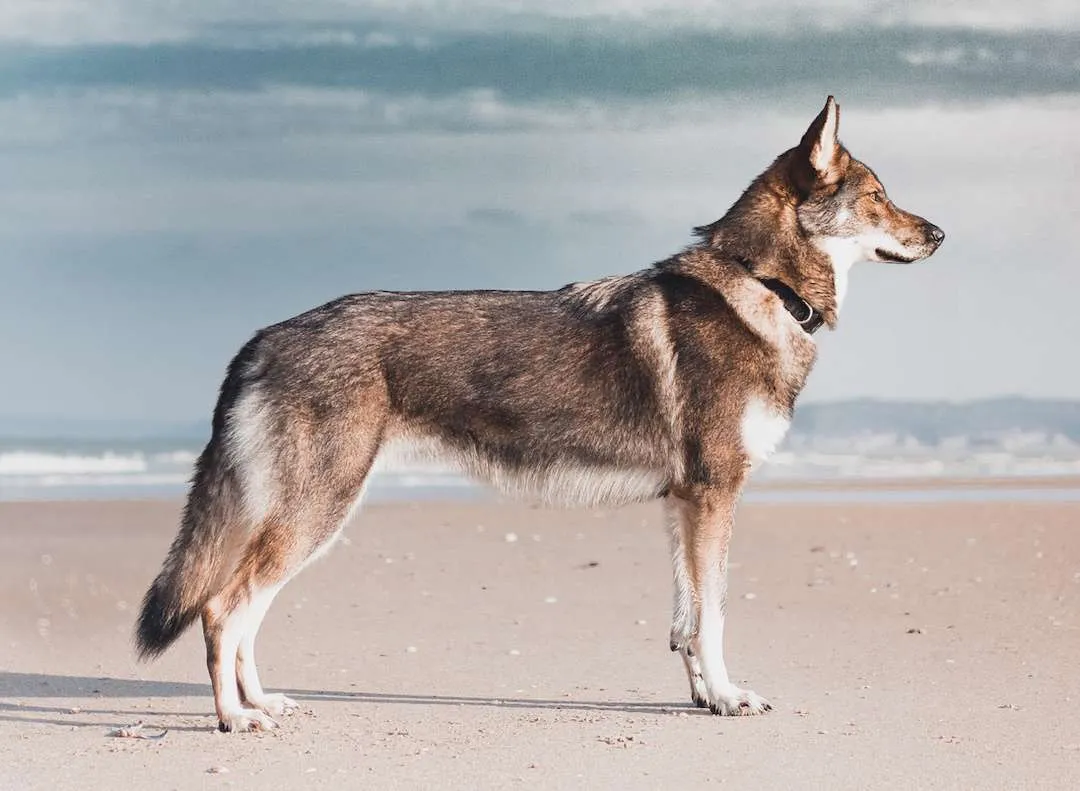Statistics:
- Height: 8-14 inches
- Weight: 25-40 pounds
- Life Span: 10-14 years
- Diet: Balanced dog food suited for size and age
Basschshund Overview:
The Basschshund is a unique and charming crossbreed that has inherited distinctive traits from both the Basset Hound and Dachshund parents. With their short legs and elongated body, they have a one-of-a-kind appearance that is instantly recognizable.
The breed is often characterized by its friendly and affectionate nature, making it a popular choice for families. Though they may appear somewhat laid-back, the Basschshund is also intelligent and inquisitive, often showing a keen interest in their surroundings.
Basschshund Highlights:
The Basschshund’s endearing looks and personality have made it a favorite among dog lovers. They tend to be exceptionally good with children, gentle, and often ready for a snuggle. Their innate curiosity can make them amusing companions, always eager to explore new scents and sights.
Their size and moderate exercise needs make the Basschshund suitable for various living situations, including apartments. However, they may have a propensity to bark, which can be both a deterrent for intruders and a challenge in densely populated living areas.
Basschshund Evolution and History:
The Basschshund is a designer breed, meaning it has been intentionally bred from two purebred parents, the Basset Hound and the Dachshund. This crossbreeding likely began in the late 20th century or early 21st century, coinciding with a growing interest in designer breeds.
The parent breeds have distinct and diverse histories. The Basset Hound, known for its tracking ability, has roots in France. The Dachshund, originally bred for hunting badgers in Germany, is a feisty and courageous breed. The combination of these traits has created the Basschshund’s unique personality and appearance.
Basschshund Size and Weight:
The Basschshund’s size and weight can vary widely, depending on the dominant traits inherited from the parent breeds. Typically, they stand between 8 to 14 inches tall at the shoulder and weigh between 25 to 40 pounds.
Their body is often elongated, reflecting the distinctive appearance of both the Basset Hound and the Dachshund. This unique body structure should be taken into consideration in aspects of care, particularly in preventing obesity and supporting their back health.
Basschshund Personality:
The personality of a Basschshund can be a delightful blend of the parent breeds. They often exhibit the Basset Hound’s gentle and laid-back nature, coupled with the Dachshund’s intelligence and sometimes stubborn streak.
They are generally loving and loyal, thriving on human interaction. However, their inquisitive nature and strong sense of smell can sometimes lead them to be a bit independent and prone to following interesting scents.
The Adaptability of the Basschshund:
The Basschshund is a relatively adaptable breed, able to live in various environments, including apartments and homes with yards. Their moderate exercise needs and compact size contribute to this adaptability.
While they typically adjust well to different living situations, their propensity to bark and potential for weight gain means that careful consideration must be given to their living environment, training, and diet.
Basschshund Temperament:
Basschshunds are typically gentle and good-natured. They tend to get along well with both adults and children and can be quite affectionate. Their curiosity and intelligence often make them engaging companions, though they may also have a slight stubborn streak.
Socialization and consistent training from a young age are essential to ensure that the Basschshund is comfortable around new people, animals, and environments. Their hunting instincts may also surface at times, particularly when encountering small animals or interesting scents.
Basschshund Maintenance and Grooming:
The Basschshund’s coat may vary from short and dense to long and smooth, depending on the parent breeds’ characteristics. Regular brushing, usually once a week, will help keep the coat healthy and reduce shedding.
Other routine care, including teeth brushing, nail trimming, and ear cleaning, is essential to maintain overall health. Special attention should be given to their elongated body structure, particularly in maintaining a healthy weight to avoid undue stress on the back.
The Trainability of the Basschshund:
Training the Basschshund can be a rewarding experience, but it may also present some challenges. Their intelligence allows them to learn quickly, but their stubbornness might require a patient and consistent approach.
Positive reinforcement, including treats and praise, often works well with this breed. Socialization and obedience training should begin early to establish good behavior patterns.
Exercise Needs of the Basschshund:
The Basschshund requires moderate exercise to keep them healthy and happy. Daily walks, playtime, and mental stimulation, such as puzzle toys, are usually sufficient. However, their strong sense of smell and hunting instincts may lead them to wander, so secure fencing and leash control are essential.
Their unique body structure also requires consideration in exercise routines to avoid unnecessary strain on their back and joints.
Basschshund Health:
The Basschshund is generally a healthy breed, but they may be prone to certain health issues inherited from the parent breeds:
- Back Problems: Their elongated body can lead to spinal issues. Keeping them at a healthy weight and avoiding activities that strain the back is essential.
- Hip Dysplasia: This condition may affect the hip joint. Regular check-ups and a healthy diet can help manage this condition.
- Obesity: The Basschshund’s structure and potential lack of exercise may lead to weight gain. Proper diet and regular exercise are key to prevention.
- Ear Infections: Regular ear cleaning and check-ups can help prevent and detect this common issue.
Basschshund Care:
Caring for a Basschshund involves meeting their specific physical and emotional needs. Regular exercise, proper feeding, and grooming are all essential aspects of their care.
Understanding their unique personality, body structure, and potential health risks is key to providing a loving and supportive environment for the Basschshund.
Basschshund Feeding:
Feeding the Basschshund requires a balanced diet tailored to their size, weight, and age. High-quality dog food that meets the nutritional needs of medium-sized breeds is typically suitable.
Special care should be taken to avoid overfeeding and monitor weight, as obesity can lead to health problems, particularly in a breed with an elongated body.
Basschshund Coat Color and Grooming:
The Basschshund’s coat color and texture can vary widely, depending on the inherited traits from the parent breeds. Colors may include shades of brown, black, red, or a combination of these.
Regular grooming, including brushing and occasional baths, is needed to keep the coat clean and healthy. The type of coat will determine the specific grooming needs, ranging from simple weekly brushing to more involved care for longer coats.
Basschshund and Children:
The Basschshund is often considered an excellent family dog, known for its gentle nature and affection for children. However, it’s essential to supervise interactions with very young children and teach them how to handle the dog respectfully.
Their size makes them suitable for families with children, but their elongated body must be handled with care to avoid injury.
Basschshund and Other Pets:
The Basschshund generally gets along well with other pets, especially if socialized from a young age. However, their hunting instincts may sometimes surface, particularly with smaller animals.
As with any breed, careful introductions and understanding the individual dog’s temperament are key to successful relationships with other pets.
Similar Dogs:
- Basset Hound: Naturally, the Basschshund shares many physical and personality traits with the Basset Hound, such as the short legs and often affectionate demeanor.
- Dachshund: The Dachshund’s influence is clearly seen in the Basschshund’s elongated body and sometimes independent nature.
- Cocker Spaniel: Similar in size and often in coat texture, the Cocker Spaniel may share the Basschshund’s gentle and affectionate nature, making them both suitable family pets.
In summary, the Basschshund is a charming and distinctive breed that combines the unique characteristics of the Basset Hound and Dachshund. Their loving nature, combined with some specific care needs, makes them a delightful and engaging pet for many different types of families and individuals. Understanding and meeting their unique needs will ensure a happy and healthy companion.

